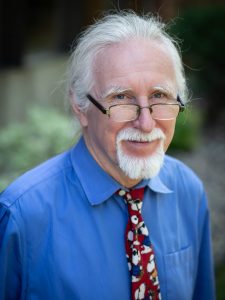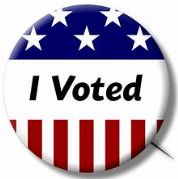 By Bob Hulteen
By Bob Hulteen
The group of synod leaders (Vice President Felicia Boone, Pastors Jen Collins, Ryan Fletcher, David Larson-Martinez, and Siri Strommen) who are helping to plan the 2024 Bishop’s Theological Conference (BTC) gathered at the synod office a couple months ago. When the conversation shifted to the kinds of topics or messages that might be important for our rostered ministers – pastors and deacons – in the fall of 2024, the impact of political elections came up. These leaders were already burdened and fearful by the tone and content of what was happening on the national (and even the local) stage.
“When anxiety runs high, we are normally not at our best.”
Every person in the room had had recent conversations with colleagues who expressed concern over the divisiveness of the political climate, … and its effect on conversations within congregations. They worried about how they would lead in the midst of animosity – if not within their congregation, then in their community. The level of angst is already high, and we haven’t crossed the traditional Labor Day entrance into political debate.
And, it’s not just deacons and pastors. Lay leaders are also experiencing high levels of anxiety about this year’s election. What complicates the normal strong feelings about election this year is the sense for many that it’s not just about who wins; it’s about the prospect of maintaining democracy.
AS A HEAD JUDGE in Minneapolis (at the polling site hosted by St. Peder’s Lutheran Church), I am concerned about the safety of my team judges. Occasionally, disgruntled voters will become quite agitated; if they are already “ginned up” before coming to the polls, negative interactions are even more likely. I fear that, by fall, some of my trusted recurring judges may opt out of providing this basic civil service. (Pray for election judges.)
And, election judges won’t be alone in their levels of stress. Many of you may well be “on edge” as the leaves turn from summer’s green to the golds, oranges, and reds of the ever-too-short fall.
“The pastors and deacons worried about how they would lead in the midst of animosity – if not within their congregation, then in their community.”
Having a plan for response can be the best antidote to high anxiety. Reflect now about what you might want to do to lower your stress level and to be an agent of healing. Here a couple thoughts:
- Host a service wherein people can acknowledge through litanies their concern and lament over the state of politics. There are many good resources for such services, including some from the synod’s website used a few federal elections ago.
- Use the proposed draft social statement on Civic Life and Faith this summer or fall for adult education within the congregation.
- Offer your space for a Respectful Conversations, a program that is sponsored by the Minnesota Council of Churches to offer structured, facilitated discussions intended not to change minds, but to “soften hearts.”
- Become an election judge yourself. I can speak from experience that there is a definite need for election judges who can maintain calm in potentially tense situations. And, at least in the City of Minneapolis, the training for election judges is utterly amazing. Check with your own locality to inquire about the need.
- If you feel like you have energy for it, participate in election protection efforts. 866OurVote is a coalition of nonpartisan organizations like the League of Women Voters and Common Cause that have come together to ensure a fair election and to assure voters that participation is important.
- Pray for the leaders of congregations and of civic organizations who will be under greater scrutiny than ever. Fear of retribution or violence even for nonpartisan activity is high, and we all expect courageous leadership in times that are challenging. Be sensitive to the pressure of leaders of all institutions during this election season.
When anxiety runs high, we are normally not at our best. Preparation may well be the best way to deal now with the coming stress. Make a plan for the fall, … one that keeps the health of your congregations and communities at its center.
And, maybe take a break from social media …

